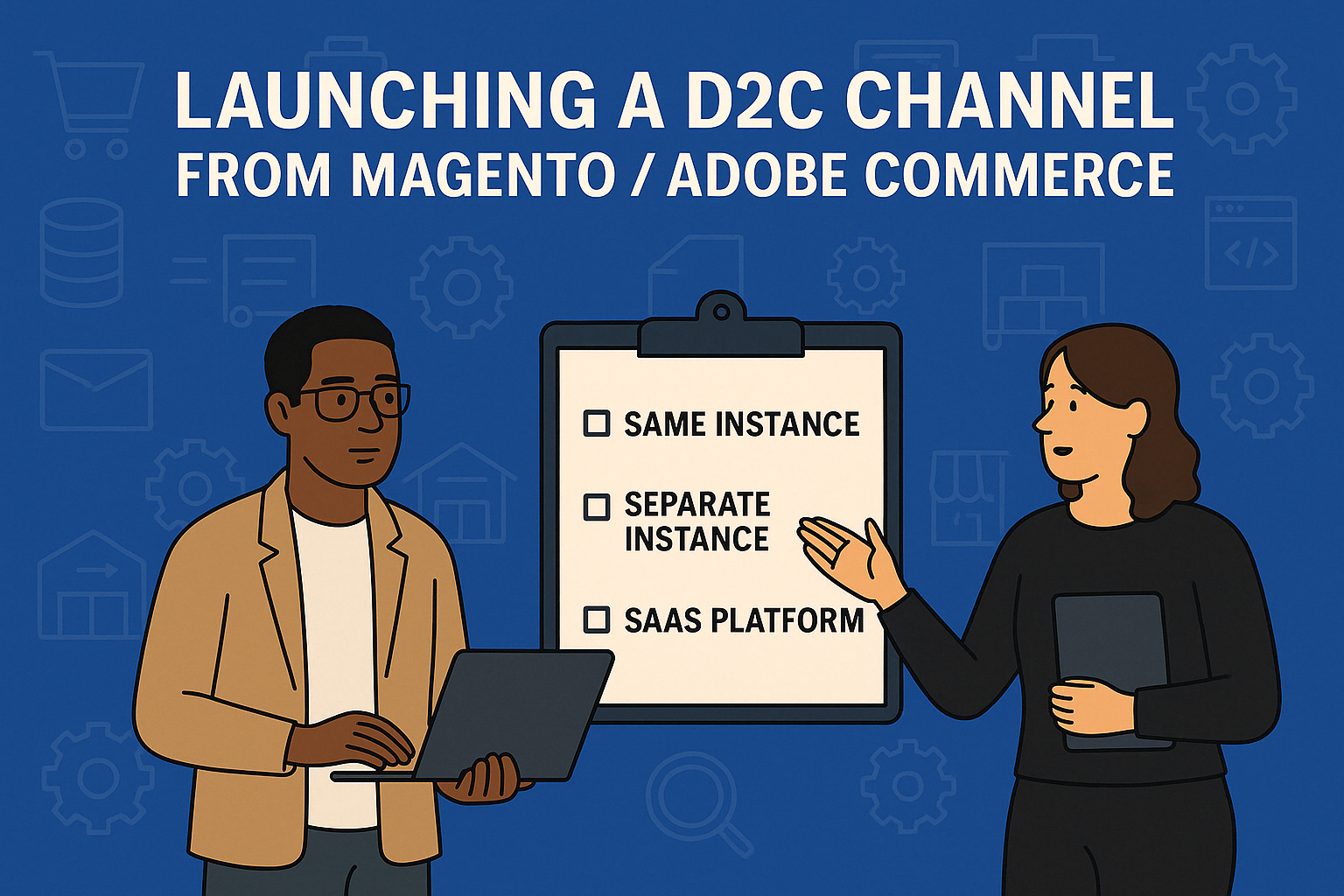Launching a D2C Channel from Your Existing Magento Platform: Three Strategic Paths for Manufacturers
Proven strategies for launching a D2C channel from your existing Magento or Adobe Commerce setup.
4 min read
 Jeff Zoldy
:
January 24, 2025
Jeff Zoldy
:
January 24, 2025

The automotive industry is rapidly embracing eCommerce, with merchants leveraging digital platforms to sell parts, accessories, and even services. But automotive eCommerce isn't a one-size-fits-all operation — businesses require platforms that handle complex catalogs, compatibility searches, and seamless integrations. In this guide, we’ll compare Magento/Adobe Commerce, BigCommerce, and Shopify in depth, examining how each caters to automotive merchants.
Unlike general eCommerce stores, automotive merchants face specialized challenges:
Magento, an open-source platform, and its enterprise-level counterpart, Adobe Commerce, are known for their unmatched flexibility and ability to manage large-scale operations.
Advanced Catalog Management:
Powerful B2B Capabilities:
Custom Extensions and APIs:
AI-Driven Personalization:
Scalable Infrastructure:
More on Magento: IronPlane Magento 2 Development Services | 2025 Guide
BigCommerce strikes a balance between simplicity and versatility, offering out-of-the-box solutions tailored for automotive merchants without requiring extensive customization.
Native Product Filtering:
Multi-Channel Integration:
Robust B2B Features:
Headless Commerce Capabilities:
Secure and Compliant Hosting:
More on BigCommerce: Do You Know About These BigCommerce Features?
Shopify is best for small to medium-sized automotive merchants looking for a quick, easy-to-manage solution. While it lacks the deep customizations of Magento, Shopify excels in usability and speed to market.
Ease of Use:
Extensive App Ecosystem:
Mobile-First Design:
Integrated Payment Processing:
Quick Deployment:
| Feature | Magento/Adobe Commerce | BigCommerce | Shopify |
|---|---|---|---|
| Customization | Extensive | Moderate | Limited |
| Ease of Use | Moderate | Moderate | High |
| B2B Support | Advanced | Robust | Limited |
| Scalability | High | High | Moderate |
| SEO Capabilities | Advanced | Strong | Good |
| Product Filtering | Customizable | Native support | Via apps |
| Cost | High | Moderate | Low to Moderate |
The best eCommerce platform for your automotive business depends on your specific needs. For large-scale operations with complex catalogs, Magento/Adobe Commerce is unmatched. BigCommerce offers a versatile, mid-tier solution with robust B2B tools, while Shopify simplifies the process for smaller businesses or newcomers to eCommerce. Evaluate your priorities, test platform demos, and consult with experts to make the best decision.
Magento/Adobe Commerce is ideal due to its advanced product filtering and ability to integrate with custom tools like VIN decoders.
Yes, all three platforms support migration tools or services. Magento offers advanced migration flexibility, BigCommerce has tools for seamless transfers, and Shopify offers apps for easy migration.
Shopify offers mobile-optimized themes out of the box, BigCommerce provides AMP support, and Magento allows for custom mobile-responsive designs.

Proven strategies for launching a D2C channel from your existing Magento or Adobe Commerce setup.
.png)
eCommerce expert Aaron Sheehan from BigCommerce breaks down the key advantages and disadvantages of BigCommerce, Magento, Shopify, and WooCommerce.

IronPlane recently conducted interviews with eCommerce experts on the topic of the future of eCommerce. This post highlights the six key ideas raised in our conversations.